MALAYSIANSKINI | Even though Jasmine King graduated from secondary school more than a decade ago, she still can’t forget an unpleasant incident that happened in her classroom.
It happened when Jasmine was a Lower Sixth Form student in a school in Penampang, Sabah. One day, her class teacher was absent and a substitute teacher entered the classroom instead.
The substitute teacher decided to give the class full of girls a lecture on virginity and used the analogy that someone being a virgin was like a pearl. He said that if a pearl is thrown in the mud, the mud can be washed off easily and the pearl will still be valuable.
He then warned the girls that if they are not “pure”, their worth is like a piece of paper, that is if the paper was thrown into the mud, it becomes dirty and unusable no matter how hard we try to wash it.
Jasmine, who was 18 years old at the time, was too shocked to react to the statement. “I kept asking myself, ‘he can't possibly think that this is okay?’"
“These were a bunch of teenagers who were at an age of exploring their bodies and sexuality but the teacher indirectly told us that it was 'too late' for us; that we are worthless and nobody wants us. That was really upsetting and disappointing.”
She felt disgusted but she wasn’t going to be defeated by the statement.
As the eldest in a single-parent family, Jasmine had to grow up fast. She always thought of taking care of her younger sister to put her mother’s mind at ease. As a result, she had to play the role of “big sister” and attained maturity earlier than her peers. She found herself playing the role of adviser, where her friends come to her for guidance on romantic and family relationships and school matters.
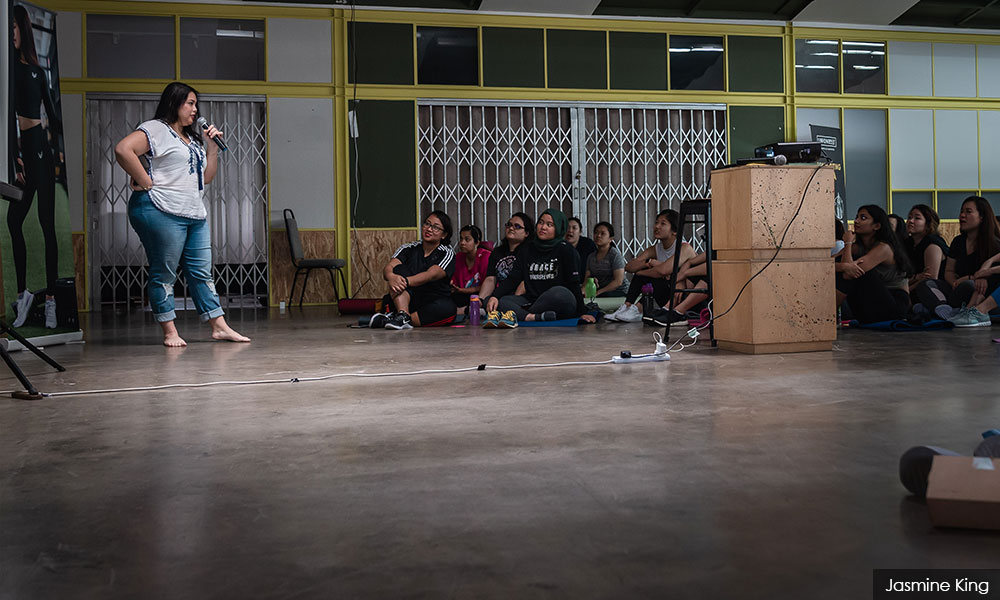
Although the absurd statement made by the substitute teacher left her dumbfounded, Jasmine said she still had good memories of studying in the school where she served on the student body council and was the head girl.
Unfortunately, she also realised that encounters with such problematic ideas don’t just disappear after one graduates from secondary school.
Paradox of a sexualised world
Jasmine sees herself as a sexual health educator and had set up an Instagram account “Jasexplains” three years ago which spread sexual health knowledge and advocates for sex-positivity.
“If anyone asks me why I'm in sexual health education and why specifically sexual health education for adults, it's because of damaging and problematic sex education ‘lessons’ that will haunt us forever, even as adults.”
Jasmine observed that our culture is full of disciplines and teachings which make people feel ashamed of their body, sexuality and pleasure.
She gave an example that in Malay, the genitals are called kemaluan or “private parts” which mean it’s something to be ashamed of and something secret and private. Another example is with pleasure and masturbation where parents warn their kids of growing hairs on their hands or the risk of their penis falling off in order to discipline them against masturbating.
In reality, the avoidance or prohibition of topics related to sex will make people become either afraid or ashamed of their sexuality or try very hard to prove themselves in that field, says Jasmine who has perceived a puzzling contradiction - people surrounding her don’t want to talk about sex but yet life is full of sexualised information.
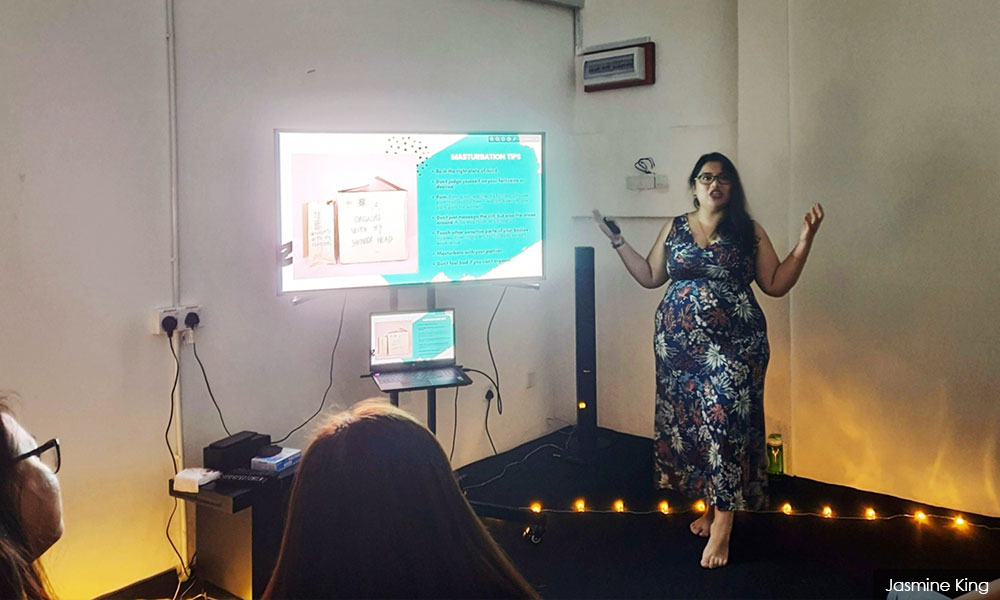
“I think since I was really young, I have always found it very interesting that we live in a very sexualised world: when you open MTV, there are half-naked people dancing, or in movies, advertisements, everything is sexualised, even in Malay advertisements.
“But at the same time, if I have any questions about sex, sexuality, pleasure and masturbation, suddenly (everything) became very taboo. No one wants to talk about it, they would say it is very shameful, that is not right, why do you talk about it?
“I just don't understand that,” Jasmine said, citing the story of the child in the children’s story, The Emperor's New Clothes, who is the only one who dares to point out that the sovereign is naked.
She is puzzled over why other people simply can’t acknowledge the truth and worries that being secretive on topics related to sex will eventually make people lose autonomy over their bodies.
Sex education for the adults
In the district where she grew up, it was normal to hear of female students who dropped out because of unexpected pregnancies. Jasmine said teenagers were exposed to a lot of misconceptions about sex, believing that pregnancy was caused by “boys and girls sitting next to each other” or it will only happen if “boys and girls get married”.
Jasmine gave an example when, as teenagers, her girlfriends were in an abusive relationship, they were emotionally blackmailed by boyfriends into having sex in order to show that they are in love.
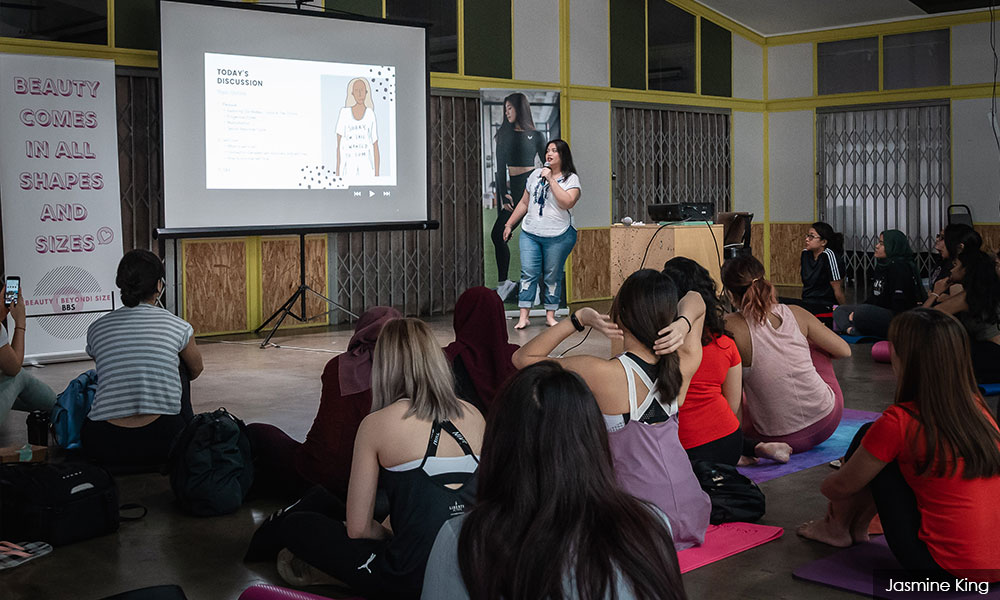
Women and girls aren’t the only ones to experience sexual shame. Even men and boys face it too, although it’s less talked about. For example, there is a lot of pressure and shame surrounding teenage boys for not being in a relationship or never having sex, that they will be labelled as "not man enough".
The uncertainties and confusions of her friends had made her become more protective. Although she was just 14 years old, she began to gather all sorts of information online, debunking myths in her friends' circle, sharing sexual health knowledge and reminding them of the importance of consent and “my body, my rules” when they are in a relationship.
After graduating from university, Jasmine became a talent manager. It wasn’t until three years ago where she became inspired by a business conference and seeing everyone chasing their dreams that she began to think about the things she is really passionate about.
Eventually, she decided to start a sexual health page and do advocacy work. “I ‘specialise’ in sex education for the adults, that is how I brand myself,” she said.
Why adults specifically? “Because I feel that as adults, we all have our own problems from our childhood; there is a lot of shame and guilt, I want to address those issues.
Jasexplains currently has more than 3,500 followers, most of whom are Malaysians aged between 24 to 35 years old.
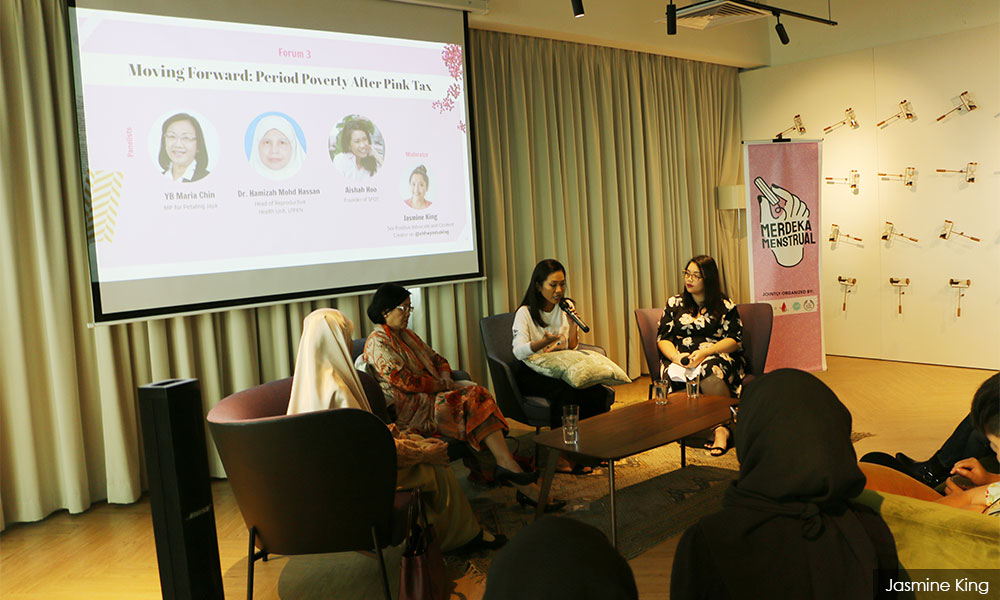
She often receives messages from followers, asking questions regarding sexuality and body. She found that although they are adults, they are still bound by the misconceptions they were taught in their early childhood.
This had led them to have misunderstandings and feel ashamed of their bodies.
For Jasmine, sexual health education is not only about preventing sexually transmitted infections (STIs) or unexpected pregnancies but also dealing with the negative feelings surrounding our bodies.
An outlet for expressions and confessions
Regarding herself as a sex positivity advocator, Jasmine finds that her Instagram account has become an outlet for many people who are suppressed from sharing their sexual experience and thoughts.
“When they come to me, mostly it is to share their stories. Because they feel like they cannot share stories with their friends as friends will be very judgemental.
“Sometimes people ask me, I have this particular fantasy, is that normal? And then I would tell them your fantasy is very, very normal. There is a lot of shame (towards their sexuality).
“Sometimes some women will come to me and say, 'I feel like there is something wrong with my body, my body is too ugly, or I can’t enjoy pleasure'. Some say 'I didn’t know that sex can be pleasurable for women too, I thought sex is only for men'.”
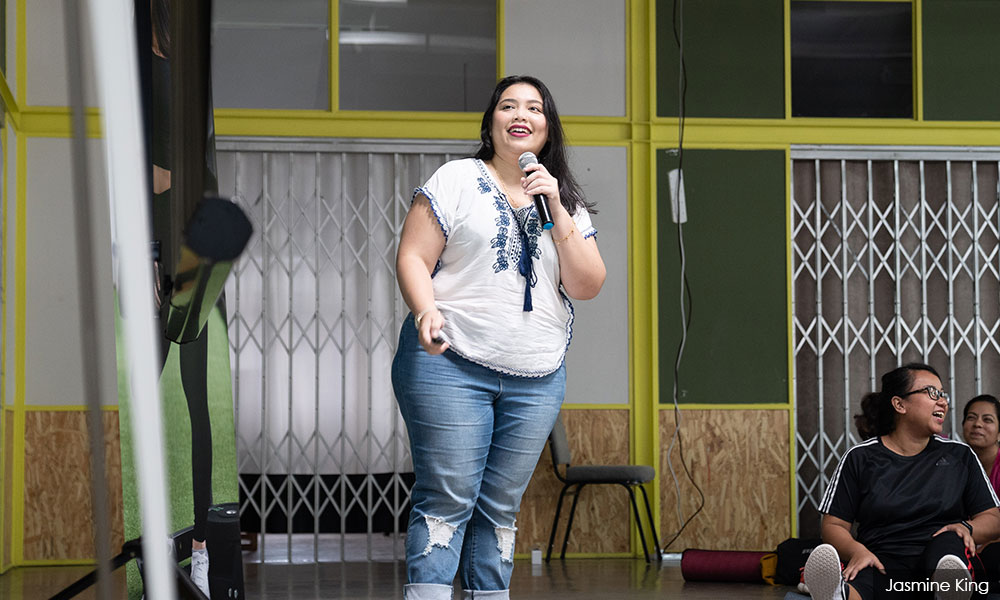
Jasmine said that pop culture, mainstream media and pornography have represented women in the role of pleasuring men and gave the perception that pleasure is only for men.
Other than replying to messages on social media, Jasmine enjoys giving workshops that refute the myths of female pleasures.
After work, Jasmine spends time listening to the secret thoughts of her followers and acknowledging their feelings.
She explained that “sex-positive” does not mean encouraging people to have free sex, but accepting different body shapes, desires or sexual orientation with natural, healthy and positive attitudes without shame or stigma.
“As long as you don’t violate people’s consent and boundaries, everything is normal and healthy, there is no shame and stigma. When you want to discuss something, we talk about it openly and healthily.
“And you don’t have to have sex in order to be sex-positive. You can be supportive by not body shaming others. You know, we all come in different sizes.”
Aware that we are in a society in which it is hard to discuss sexuality and pleasure, Jasmine was careful in choosing her words in order to avoid unnecessary confusion, for instance, some parents misunderstand sex education as “teaching their kids about different sex positions”.
Hence, she thinks that comprehensive sex education (CSE) is a better phrase to describe her work.
“CSE is more detailed and in-depth when it comes to sexual health awareness, it involves recognising proper names of body parts; understanding safe touches, unsafe touches and unwanted touches; the importance of asking consent and respecting boundaries; the difference between healthy and toxic relationships and so on,” she explained.
To give context to Asians' sexuality
When she was a teenager, she also realised that people who talk about sexual health education are mainly Western people from the US or Europe. She was unhappy that this information didn’t address the Asian context and made her unable to relate.
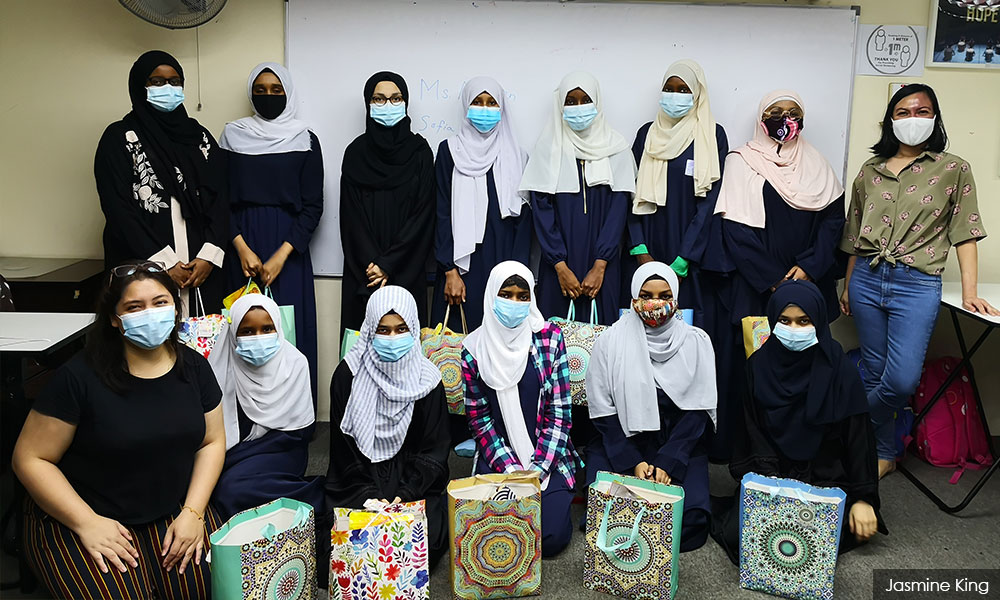
“They would say 'Easy what, just go out and go to the pharmacy to buy condoms, then you can have safe sex'. Over here, can you go to the pharmacy to buy condoms and not feel ashamed of being judged?”
This prompted Jasmine to provide a localised perspective on sexual health education.
When the movement control order was implemented last year, Jasmine listened to podcasts for more than 80 hours in total. At that time, she was thinking about people who are unable to talk about their sexuality.
She thought, if they can’t discuss it with others, maybe they can listen to other people having conversations and normalise the conversation within themselves.
She then created a new podcast “I Wish Someone Told Me” last December. In this show, she invited people from Asian countries to share how their society and culture discussed sex.
The first series of the podcast has 10 episodes, there are stories of a struggle and self-discovery of a gay Muslim man; stigma and misconception faced by a Filipino nude artist who began a journey into BDSM; an Indian filmmaker who utilised multimedia for sexual education in a conservative Indian society.
“I love what I do because I understand the trauma related to our culture, society, family and religion. I just want to unpack everything and encourage people to relearn.”
“The conversation on sex should be normalised. I just want to break the shame and stigma (imposed on sex). You know, sex is just part of life.”
Love others and yourself
“What about you, do you sometimes feel ashamed towards your body?” she was asked towards the end of the interview.
“I would too,” Jasmine said before pausing for a moment. Then she added: “There was a guy who said he would consider having a relationship with me only when I lost weight. I was uncomfortable about it first, but I’ve done a lot of work to know my worth and value.”
Although her job involves acknowledging and comforting others, Jasmine still lamented that sometimes negative feelings flooded her again when she was feeling low.
At that particular moment, she would be the girl who is afraid and worries about what others think of her.
I recalled a picture post on Jasexplains.
The picture has two dialogue boxes, the first box said “I love you” while the second replied, “I love me too”.




No comments:
Post a Comment
Note: Only a member of this blog may post a comment.